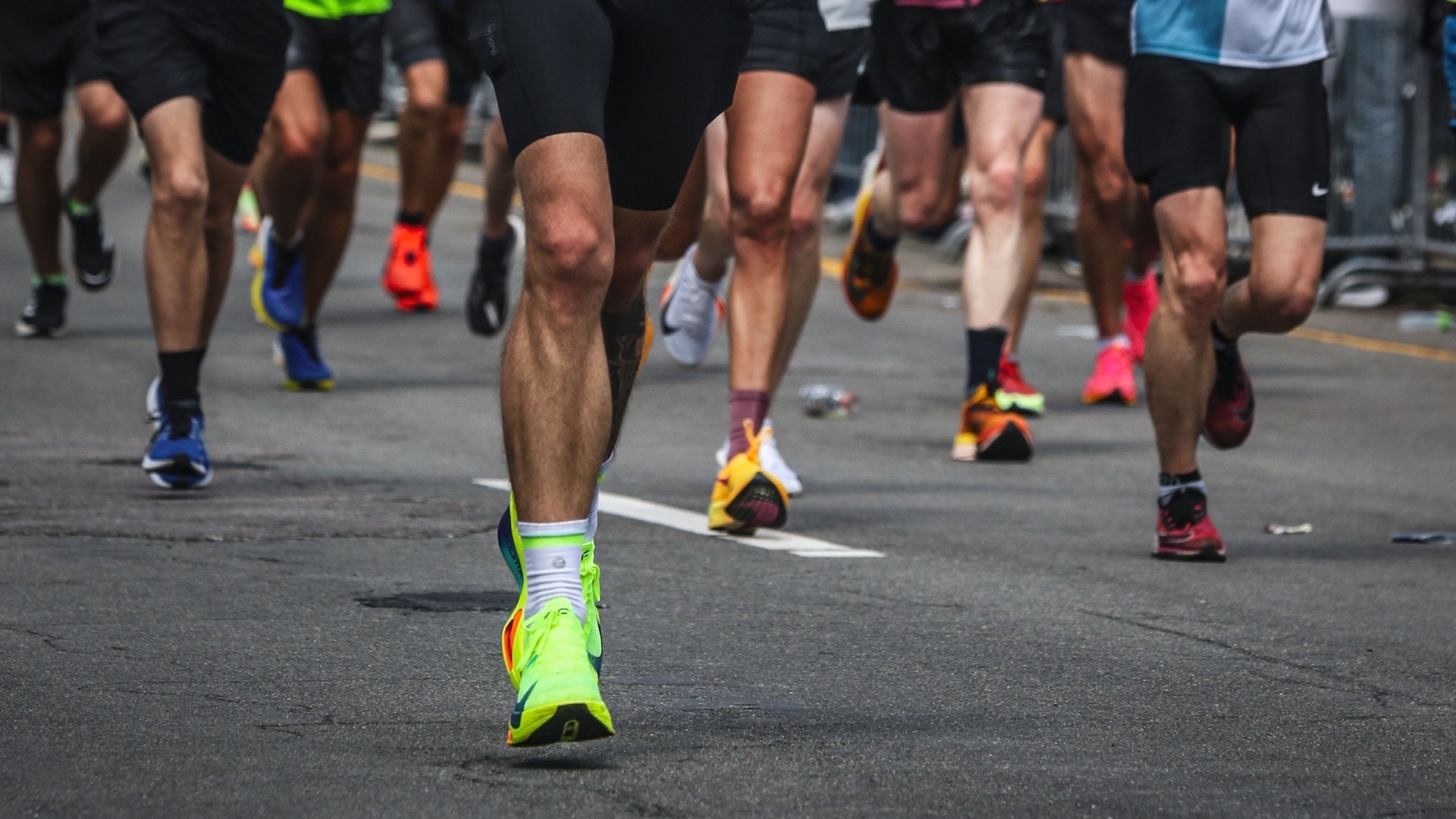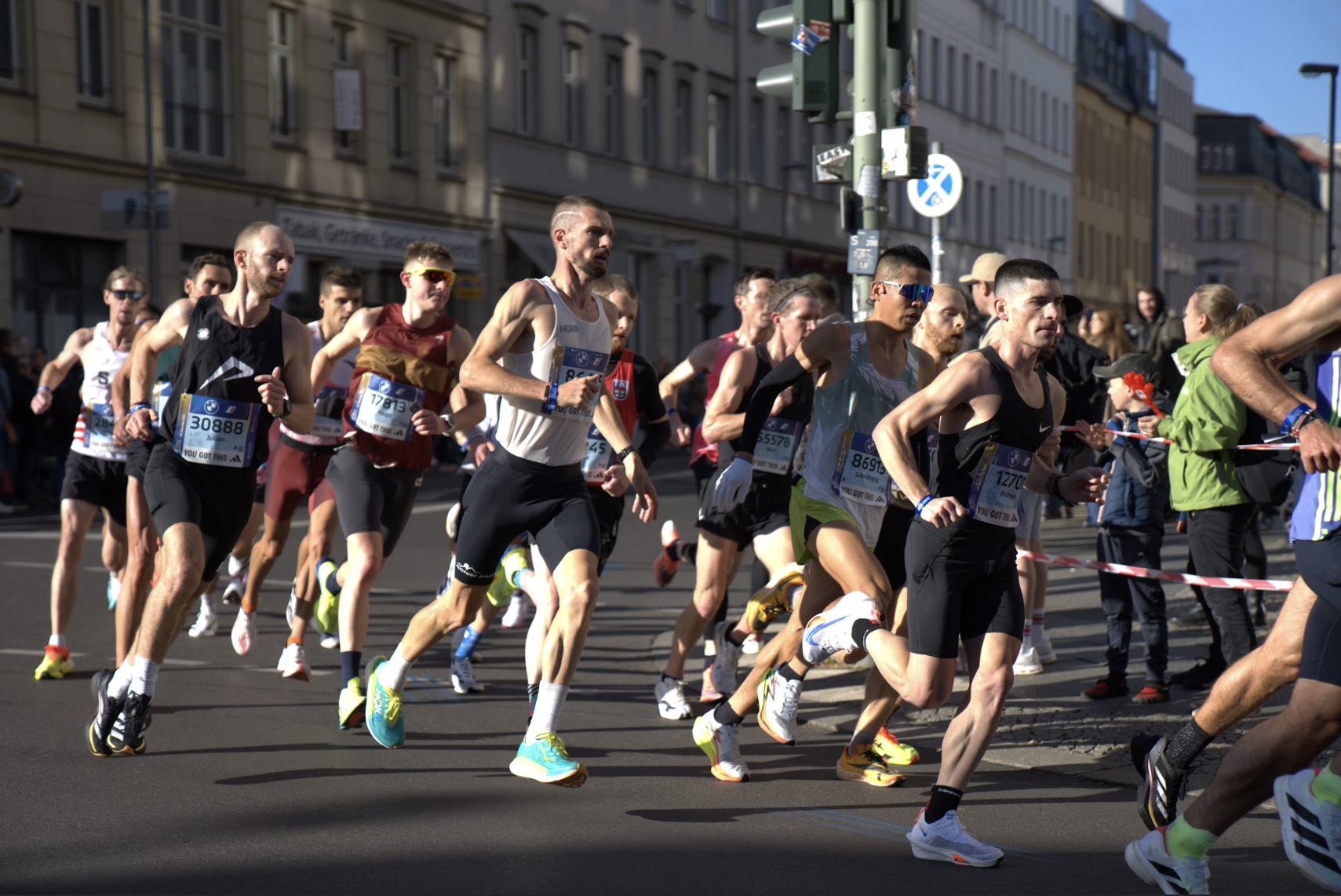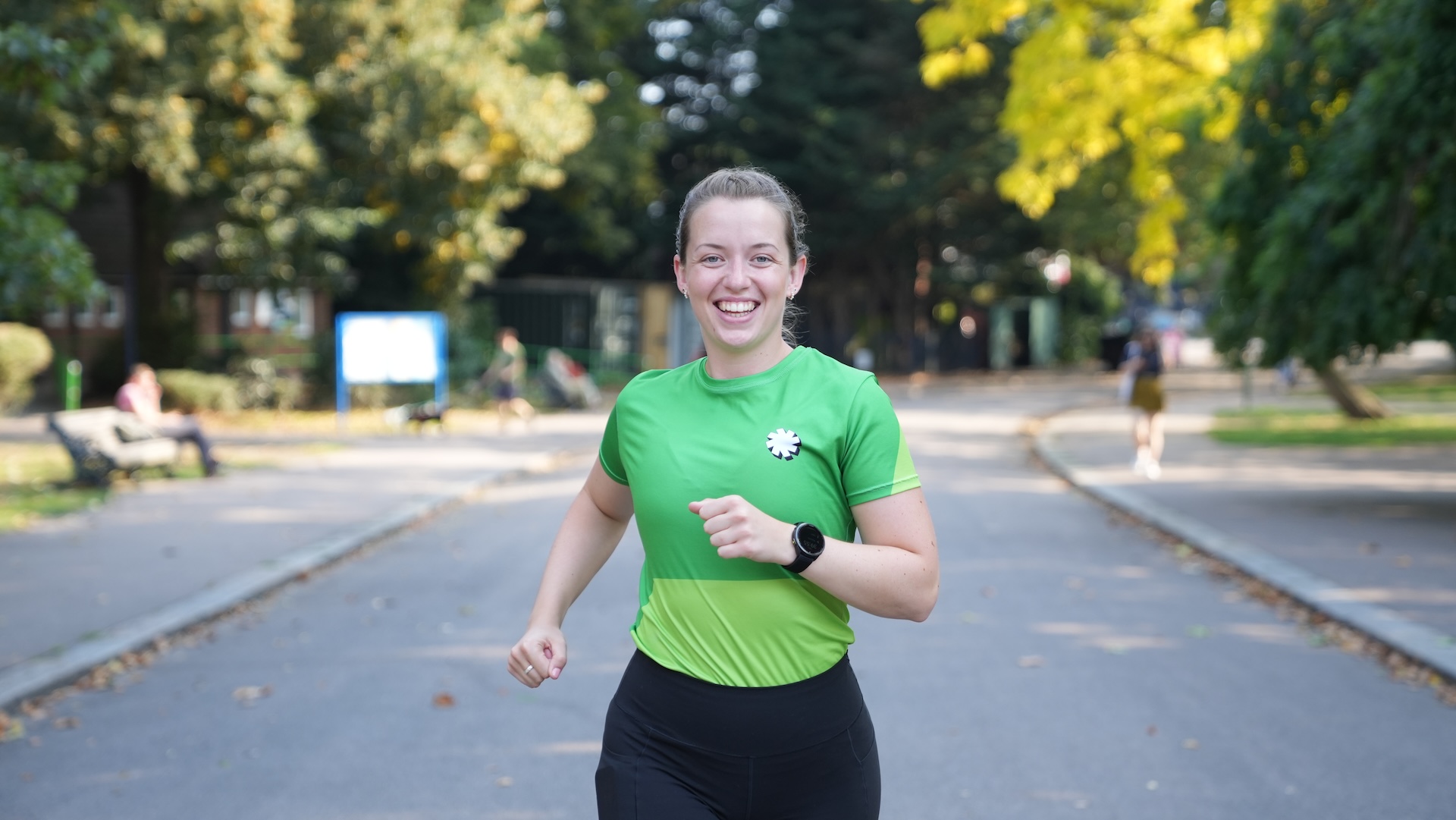How Long Does It Take To Recover From A Marathon?

You’ve finished a marathon, stairs are your nemesis, and you’re wondering when the aches and other strange feelings might go away. Maybe you’re even wondering when you can run again.
Your body goes through a lot when it completes a marathon, and recovery varies for every runner, so here’s everything to know about recovering from running a marathon.
In this, we’ll cover:
- What happens to your body during a marathon?
- How will your body feel after a marathon?
- Is there anything you can do on race day to help your body feel better after a marathon?
- How can HRV let you know if you’re recovering?
- When can you run again after a marathon?
- How do you approach back to back marathons or ultramarathon training?
WHAT HAPPENS TO YOUR BODY DURING A MARATHON?
A lot happens to your body during a marathon. Your muscles and joints take an absolute pounding; you’ll likely be dehydrated; your stomach will get churned around while you consume sugary gels and energy drinks, and then later fill it with whatever food and drink you celebrate with (typically not the healthiest choices!); and you’re going to be very tired physically and mentally.
That’s a lot for your body to try to deal with, and recover from. If you want to know more, then check out Sarah and Mo talking about what happens during a marathon.
HOW WILL YOUR BODY FEEL AFTER A MARATHON?
This is going to vary for each of us, but no matter how fast you run the marathon, you’re going to feel sore and tired. You’ll also go from being the fittest you’ve ever been on the Sunday morning, to being unable to walk downstairs on Monday morning…
- You’ll experience a lot of delayed onset muscle soreness (DOMS), mostly in your quads, hamstrings, glutes, lower legs and core, but you’ll generally feel weakness and tightness all around your body
- You might be extra hungry for a few days, or you may find that your stomach feels sensitive for a while
- You might be extra tired and you may feel ill or develop a cold as your immune system is weakened
- You might feel a little down emotionally, and experience the post-marathon blues
All these feelings are temporary and will balance out within a few days. Listen to your body and what it needs: if you ache, then stretch and walk around a little; if you’re hungry, eat more; if you’re tired, sleep more; if you’re sad, focus on doing things which make you feel happy, or on protocols like journaling (or use the approach of some people and go on vacation after a big goal race so you’ve got something to look forward to!).
But there are ways to try and reduce the intensity of these post-marathon feelings.
IS THERE ANYTHING YOU CAN DO ON RACE DAY TO HELP YOUR BODY FEEL BETTER AFTER A MARATHON?
Yes, there is! And it begins during the race. These tips also apply to your longest runs during your training block.
- Make sure you drink water, sports drink and electrolytes in the race, and take on enough fuel so that you don’t hit the wall – being severely dehydrated or low on energy can take a long time to recover from
- When you finish the race, drink more fluids and consume protein and carbohydrates as soon as you can, and then have a decent meal within an hour or two
- Have a shower or bath, and take a nap in the afternoon
- Walk around later that day to get some blood flowing around your body
- Have a nutritious evening meal with plenty of protein, vegetables and fibre
- Avoid alcohol as it can slow your recovery and affect your sleep. Also avoid taking any anti-inflammatory medication as it can impact the body’s natural healing response
- Have more protein before you go to bed to help your recovery overnight
- Try to get a good, long sleep (this can be difficult as many runners have restless, achy legs after a marathon)
- Wake up the next morning, hydrate with water and electrolytes, and do some light movements or active recovery, like a short walk or cycle
HOW CAN HRV HELP YOU KNOW IF YOU’RE RECOVERING AFTER A RUN?
Heart rate variability (HRV) is your body’s internal measure of stress. If you have a watch which can track your HRV, then this can be a good way of seeing how your body is actually responding and recovering after your race. A lower HRV compared to your normal suggests more stress in your body.
It’s very typical that after a marathon (and for your long training runs) that your HRV will be low for at least one night, but tracking it after a marathon can tell you when you’re returning to levels which are normal and balanced for you. If you don’t have a way of measuring HRV then think about your general levels of fatigue during the day.
Here’s Sarah talking about marathon recovery and HRV.
WHEN CAN YOU RUN AGAIN AFTER A MARATHON?
First of all, you should definitely take some time off after a marathon. When you choose to restart running is up to you and how your body recovers.
It can be beneficial to go for a short recovery run (or do another type of active recovery like walking or cycling) a few days after the race, as this can help you to feel better and can speed up your recovery. But don’t think of this like training. Think of it more like movement to help you stretch out your body.
It’s common for runners, including professionals, to take a week or two off after a marathon, and then take another week or two of easy running as they return. A training block can be very challenging physically and mentally, and we spend a lot of time thinking about running, so taking time off can help our body and our mind to be refreshed.
Some runners like to get back into things sooner, and do easy and recovery runs from a few days after the race. It’s best to stick to only easy running for the first two weeks after a race, as going straight into hard workouts can lead to delayed recovery and increased risks of overtraining and injury.
HOW DO YOU APPROACH BACK TO BACK MARATHONS OR ULTRAMARATHON TRAINING?
This is quite a specific question, but it can be relevant to runners who want to take on big challenges, or for runners training for an ultramarathon where they might run a marathon distance in training and then need to do the same again the following week.
Your body doesn’t just break down when it hits 26.2 miles or 42.2km. It’s more that the extra effort that goes into running a marathon leaves you feeling extra fatigue. That’s partly the race itself, partly the long build up, and partly the comedown after the race.
There’s something psychological here: if you know that the marathon is your final effort and the peak of your training, then mentally you approach it in a very different way to if you know that you’re training through a marathon towards another goal.
If you know you’re going to be running another marathon (or further) soon, then it’s a good idea if your long runs in training are closer to the marathon distance, so try and go to 23-25 miles (37-40km) instead of stopping around 20 miles (32km). Doing this builds up more resilience to running longer distances, and can have your body better prepared to help you recover – plus you should follow some of the advice above about prioritising recovery and apply this to your training.
***
Do you like to run a few days after a marathon? Or do you choose to take a few weeks off before starting again?



























Running News
Ingebrigtsen Stars at World Athletics Indoor Championships 2025 – Plus All The Winners!
Sam Ruthe Is First 15-Year-Old To Run A Four-Minute Mile!
Eliud Kipchoge Will Run The 2025 Sydney Marathon!